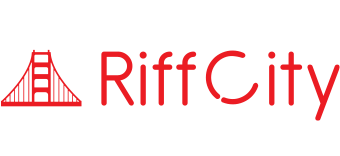GovTech: Accela’s New Offerings Handle Licensing, 311, Visualization
Check out Accela in the article below!
By Andrew Westrope
GovTech- November 3, 2020
Judging by new partnerships and product announcements every month this fall, gov tech software companies see a big future in digital services. COVID-19 created demand among state and local governments for help standing up new websites and information dashboards, setting up telework and creating online alternatives to services they used to do in person, such as licensing and permitting. Hoping to keep its footing in an increasingly competitive market, the cloud software company Accela has announced a pair of new applications and other product updates for the end of the year specifically focused on digital government and adaptability.
According to a news release, the new applications aim to help government agencies set up online alternatives for citizens to apply for occupational licenses or file 311-type service requests, such as to repair a pothole or streetlight. Accela Vice President of Product Management Amber D’Ottavio said they’re not the company’s first products for occupational licenses or request management, but they’re meant to work faster: Instead of having government employees use the software to build forms and workflows that would guide a citizen through the application process, the forms come preconfigured, albeit with some customizability, so they’re ready to go online much faster.
“It’ll shrink the implementation times significantly,” she said. “We’ve usually seen, with civic applications it reduces (implementation time) anywhere from 30 to 60 percent, because they’re not having to start from scratch.”
Other updates, due for release this month, include a data visualization tool called Accela Insights for creating information dashboards; some front-end and back-end improvements to the company’s other products involving data syncing and website building; and offline functionality and other enhancements for Accela Mobile, an app that’s essentially an extension of back-office software but specifically tailored for activities that government employees would do in the field, such as code enforcement.
Looking ahead at 2021, D’Ottavio predicted one of the top challenges for government will be constant change — in everything from funding to public policy to citizen standards and expectations. She said data will have a role to play in helping governments assess and prioritize different services and handle budget cuts, but beyond that, they’ll need the tools and business processes themselves to be as flexible as possible. Making a pitch for Accela’s approach to government software, D’Ottavio said one way to do that is with turnkey solutions that can go live in a hurry and be tweaked as needed.
“A lot of government agencies kind of get in their own way. They want it to be perfect, when they roll out something new, and it makes sense, because sometimes that’s tied to a person’s reputation or other things,” she said. “But I think right now it’s just about responding to the need … Get it up and running, involve the public, get the feedback, adjust over time, and then once you get things up and running, you do have more data at your fingertips that can help you not just iterate but focus.”
Check out Accela in the article below!
By Andrew Westrope
GovTech- June 15, 2020
When local governments reflect on 2020, one of their takeaway lessons might be the importance of adaptability. Although gov tech giant Accela had this in mind before agencies from coast to coast had shuttered their offices, the company today announced a new civic application to help fire departments make prevention work more flexible.
Accela’s new SaaS tool for fire prevention is its eighth in a series of civic applications, starting March 2018, all of which aim to replace paper-based processes with digital workflows and automated steps. The company’s news release said the new fire prevention application streamlines aspects of fire plan reviews, inspections and fire permitting, and it includes mobile tools for team inspections and training.
Aaron Williams, Accela’s senior director of solution architecture, said the application is essentially for anything a fire department needs to document, permit or inspect, which in many places includes thousands of occupancies a year. He said normally this would involve reams of printed paper, hand-delivered inspection notices, clipboards, file cabinets and potentially a lot of staff time.
“That used to be a three-week process for them to do a sweep of annuals, and now that three weeks is almost entirely gone, because all you have to do is store it in your system,” Williams said. “This will automatically schedule the inspections on the annual date, and the inspections are routed out to the stations over the Internet through our software and performed on mobile devices. You’re essentially eliminating paper entirely from the process.”
He said the product comes in three iterations: an entry-level “fire essentials” package, which can transition a department off of a paper process in a matter of weeks; a more robust “fire extended” version with more features and dashboards; and a “fire enterprise” version for inventory management and team inspections of higher-occupancy structures like high-rises and stadiums.
Accela has been selling software to expedite fire prevention processes for years, but under the original series of “civic solutions,” now being phased out in favor of new civic applications. Williams said Accela’s original civic platform of solutions was a development tool that gave governments the ability to configure their business processes, but some of those configurations became hard to maintain.
“What happened is, the solutions evolved with agencies internally over time, and they were as good as the last IT department. … The machine got so big and so complicated, you needed more people to maintain it,” he said. “With civic applications, you don’t need that product manager anymore, because Accela has that product manager, focused on building that product, fixing bugs, enhancing features.”
Besides being the next application in the series, Williams said the new fire prevention software was partially inspired by other work with government agencies through COVID-19, asking them what they needed. He said a lot of them had to close their offices that handled permits, so they were looking for mobile, digital alternatives.
“They needed to get online, like, tomorrow, or in the next few days. So we created generic solutions where you could just set the thing up, not very invasive for your staff,” he said. “A bunch of people used it, and we saw the opportunity to do the same thing with fire.”
Accela’s news release corroborated the idea that governments are going mobile: More than 80 percent of the company’s new customers since the pandemic purchased solutions in the cloud, and 66 percent of its entire customer base is in the cloud.


